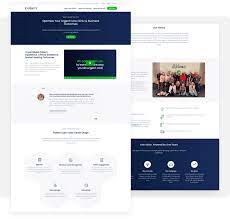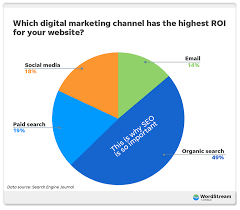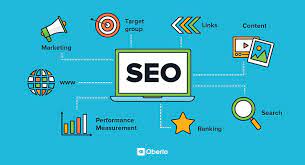Maximise Your Online Presence with Professional Website Optimization Services
The Importance of Website Optimization Services
In today’s digital age, having a strong online presence is crucial for the success of any business. One key aspect of ensuring that your website stands out among the competition is through website optimization services. These services are designed to enhance the performance, user experience, and visibility of your website, ultimately driving more traffic and conversions.
What Are Website Optimization Services?
Website optimization services encompass a range of strategies and techniques aimed at improving various aspects of your website. This includes:
- SEO (Search Engine Optimization): Optimizing your website’s content, meta tags, and structure to rank higher in search engine results pages.
- Page Speed Optimization: Ensuring that your website loads quickly to provide a seamless user experience.
- Mobile Optimization: Making sure that your website is mobile-friendly and responsive across different devices.
- User Experience (UX) Design: Enhancing the usability and accessibility of your website for visitors.
- Conversion Rate Optimization (CRO): Improving the conversion rate of your website by optimizing elements such as call-to-action buttons and forms.
The Benefits of Website Optimization Services
Investing in website optimization services can yield numerous benefits for your business, including:
- Increase in Organic Traffic: By improving your SEO, you can attract more organic traffic to your website from search engines.
- Better User Experience: A well-optimized website provides visitors with a seamless and enjoyable browsing experience, leading to higher engagement and retention rates.
- Higher Conversion Rates: Optimizing key elements on your website can lead to increased conversions, whether it’s making a purchase or signing up for a newsletter.
- Improved Brand Reputation: A professionally optimized website reflects positively on your brand image and credibility.
Choosing the Right Website Optimization Service Provider
When selecting a provider for website optimization services, it’s essential to consider their expertise, track record, and approach. Look for a company that offers customised solutions tailored to your specific business needs and objectives. Transparency, communication, and ongoing support are also key factors to ensure a successful partnership.
In conclusion, investing in professional website optimization services is an investment in the long-term success of your online presence. By enhancing the performance and visibility of your website, you can attract more visitors, engage with your target audience effectively, and ultimately drive business growth.
Essential FAQs on Website Optimisation Services: Understanding Importance, Benefits, and Selection
- What is website optimization and why is it important?
- How can website optimization services help improve my online visibility?
- What are the key components of website optimization services?
- How long does it take to see results from website optimization efforts?
- What is the difference between SEO and website optimization?
- How can I choose the right provider for website optimization services?
What is website optimization and why is it important?
Website optimization refers to the process of improving various aspects of a website to enhance its performance, user experience, and visibility. It involves strategies such as SEO, page speed optimization, mobile responsiveness, UX design, and CRO to ensure that a website is well-structured and user-friendly. Website optimization is crucial for businesses as it directly impacts their online presence and success. By investing in website optimization services, businesses can attract more organic traffic, provide a seamless browsing experience for visitors, increase conversion rates, and build a strong brand reputation. Ultimately, website optimization plays a key role in driving traffic, engagement, and conversions for businesses in the digital landscape.
How can website optimization services help improve my online visibility?
Website optimization services play a crucial role in enhancing your online visibility by implementing strategies that improve your website’s search engine ranking and user experience. By utilising SEO techniques such as keyword optimisation, meta tag enhancements, and quality content creation, website optimization services help your site appear higher in search engine results pages, making it more likely to be discovered by potential customers. Additionally, optimising for mobile responsiveness and page speed can further boost your visibility by ensuring that visitors have a positive experience on your site, leading to increased engagement and ultimately driving more organic traffic to your website.
What are the key components of website optimization services?
When it comes to website optimization services, the key components typically include SEO (Search Engine Optimization) strategies to improve search engine rankings, page speed optimization for faster loading times, mobile optimization for a seamless user experience on various devices, user experience (UX) design enhancements for better usability, and conversion rate optimization (CRO) techniques to increase the likelihood of visitors taking desired actions on the website. These components work together to enhance the performance, visibility, and overall effectiveness of a website in attracting and engaging with its target audience.
How long does it take to see results from website optimization efforts?
One frequently asked question regarding website optimization services is, “How long does it take to see results from website optimization efforts?” The timeline for seeing tangible results from website optimization can vary depending on various factors such as the current state of the website, the extent of optimization needed, and the competitiveness of the industry. Generally, some initial improvements may be noticeable within a few weeks to a few months, but significant and sustainable results often require ongoing efforts and monitoring over several months. Patience and consistency in implementing optimization strategies are key to achieving long-term success in enhancing website performance and visibility.
What is the difference between SEO and website optimization?
When discussing website optimization services, it’s common to come across the question: “What is the difference between SEO and website optimization?” SEO (Search Engine Optimization) is a subset of website optimization that focuses specifically on improving a website’s visibility in search engine results. It involves strategies such as keyword research, content optimisation, and link building to increase organic traffic. On the other hand, website optimization encompasses a broader range of techniques aimed at enhancing overall website performance, user experience, and conversion rates. While SEO is a crucial component of website optimization, the latter includes additional elements like page speed optimisation, mobile responsiveness, and user experience design to create a well-rounded online presence that attracts and engages visitors effectively.
How can I choose the right provider for website optimization services?
When looking to select the right provider for website optimization services, it is essential to consider several key factors. Firstly, assess the provider’s expertise and track record in delivering successful website optimization solutions. Look for a company that offers customised services tailored to your specific business objectives. Transparency, clear communication, and ongoing support are crucial aspects to consider when choosing a provider. Additionally, seek testimonials or case studies from past clients to gauge the provider’s effectiveness in enhancing website performance and visibility. By conducting thorough research and selecting a provider that aligns with your needs, you can ensure a successful partnership that drives your online presence towards success.









